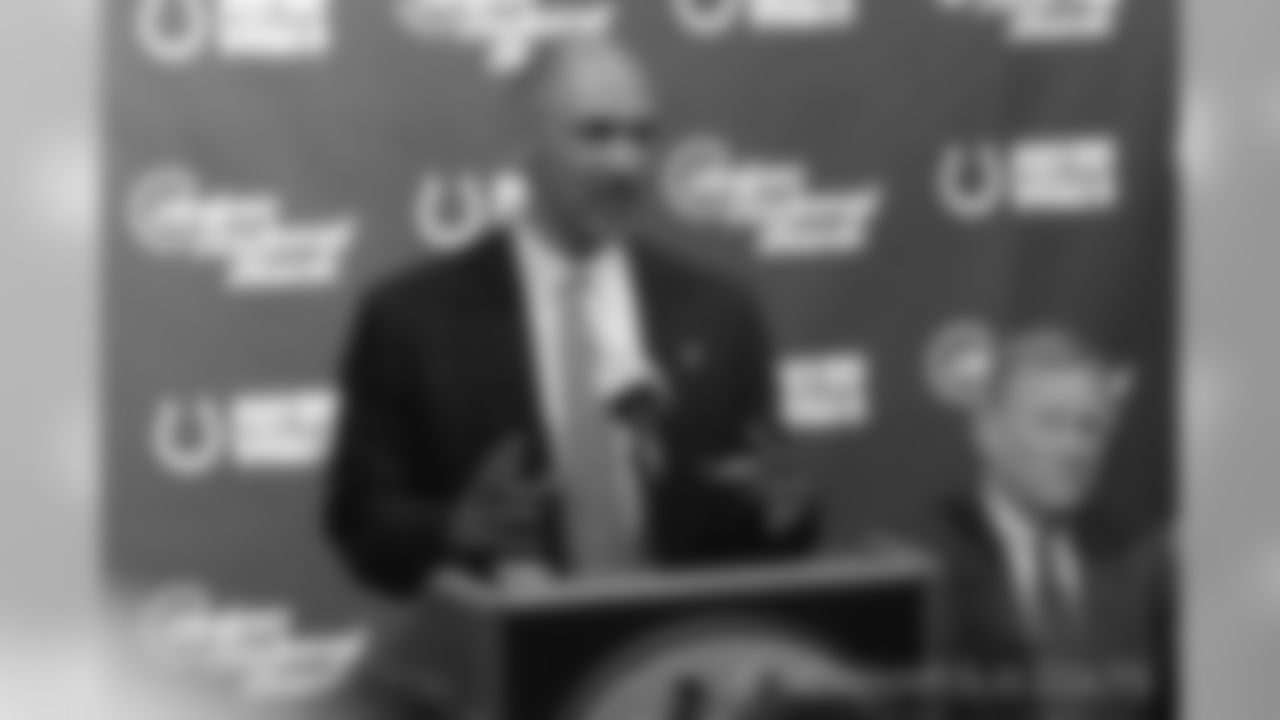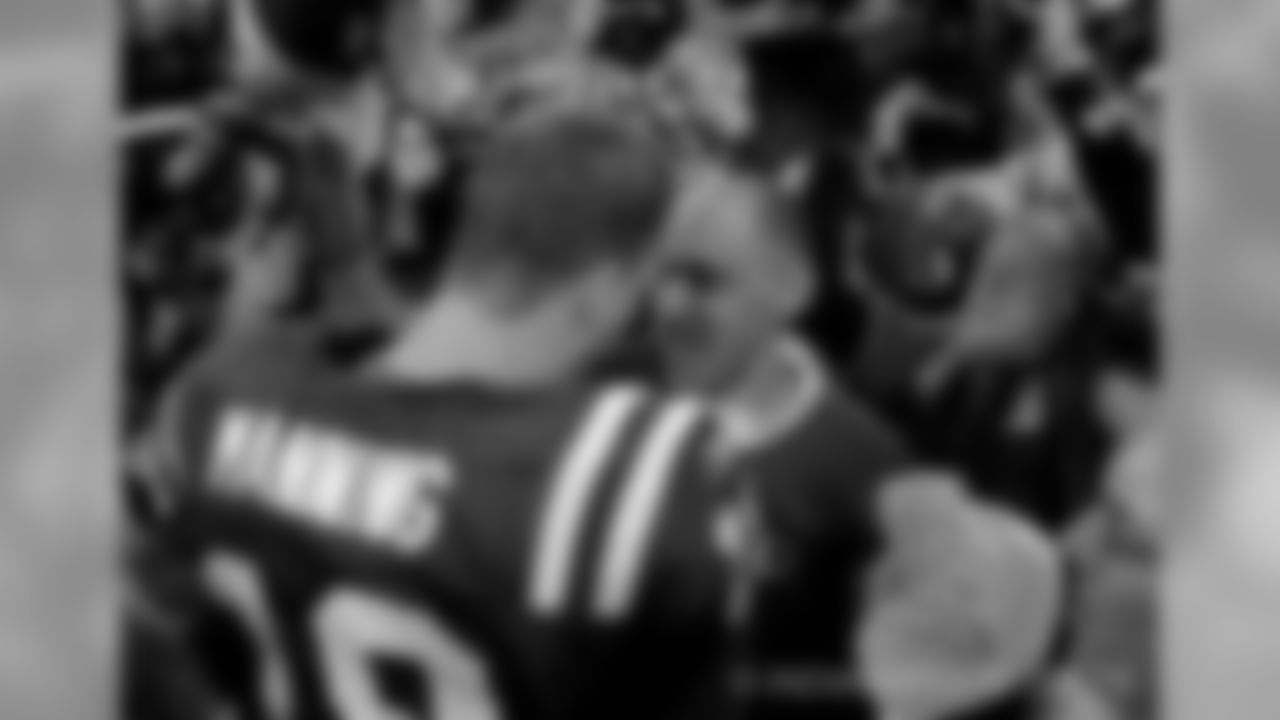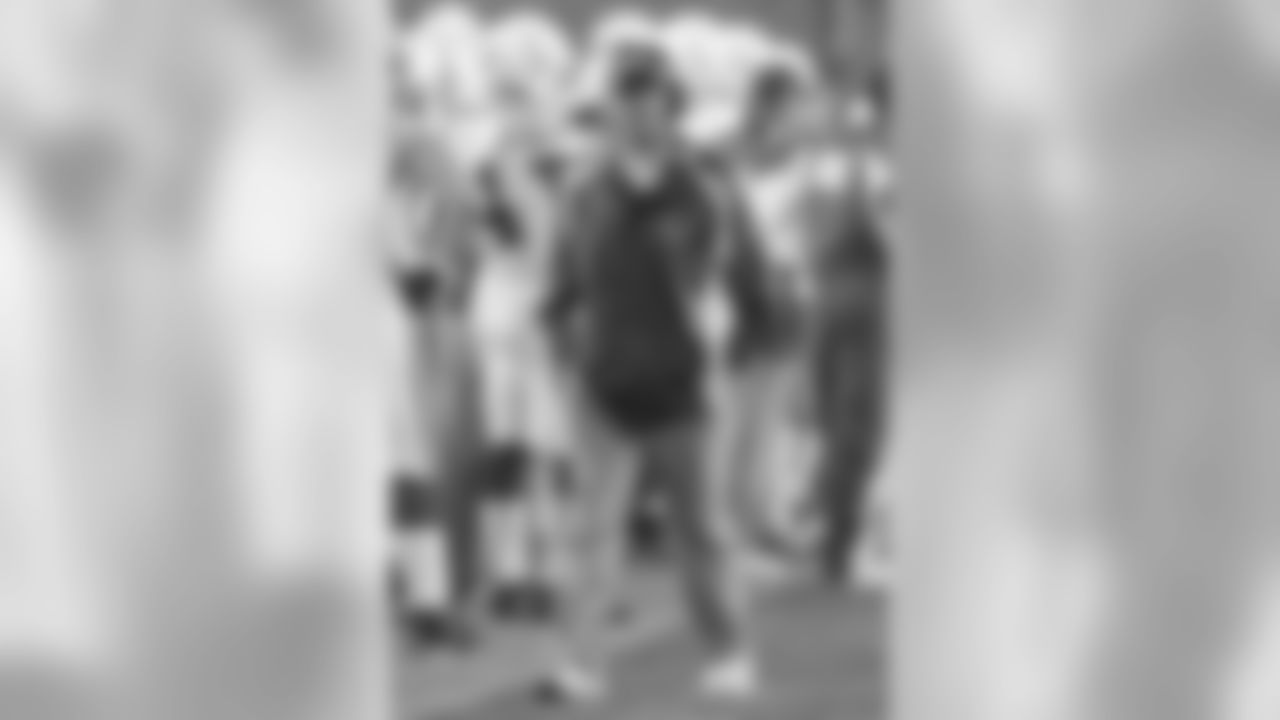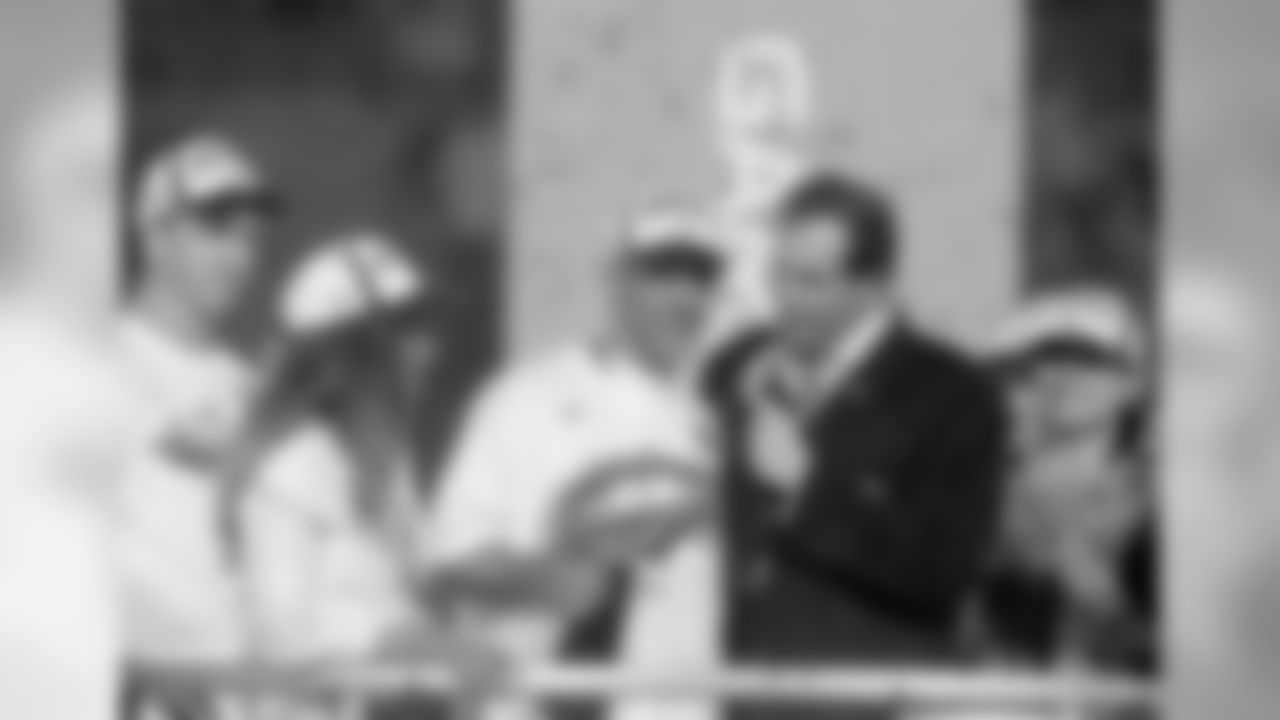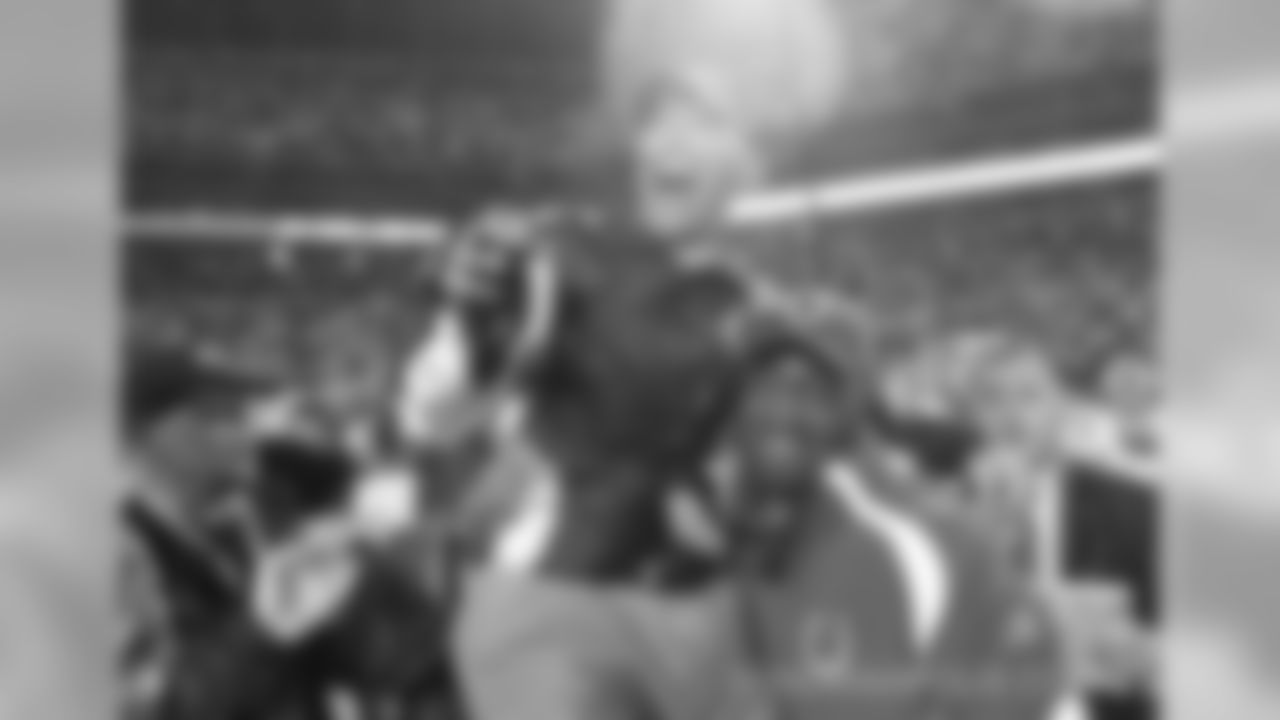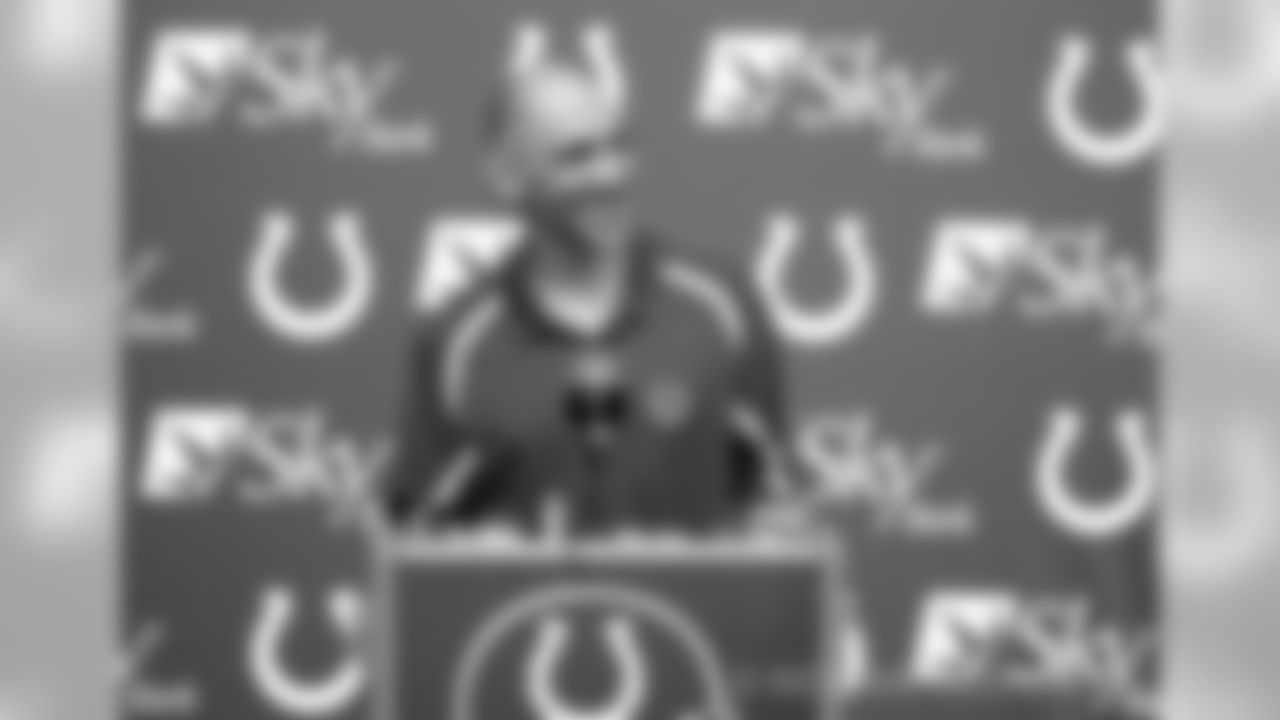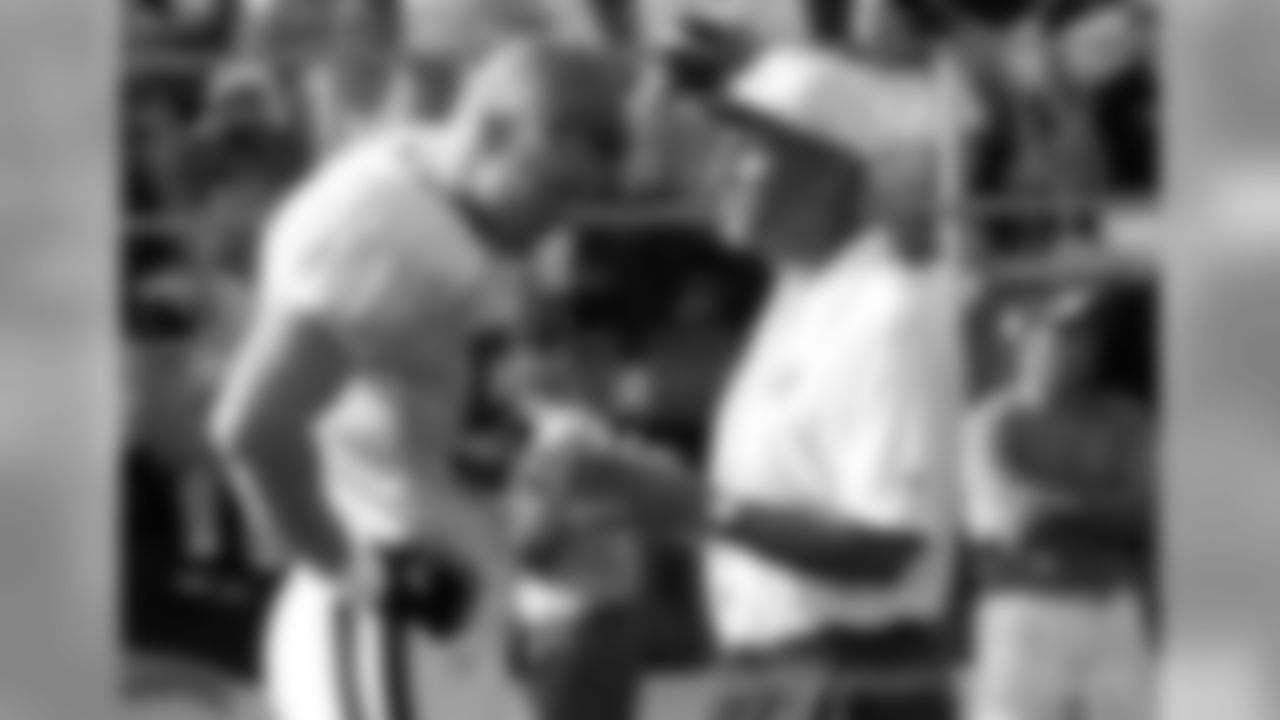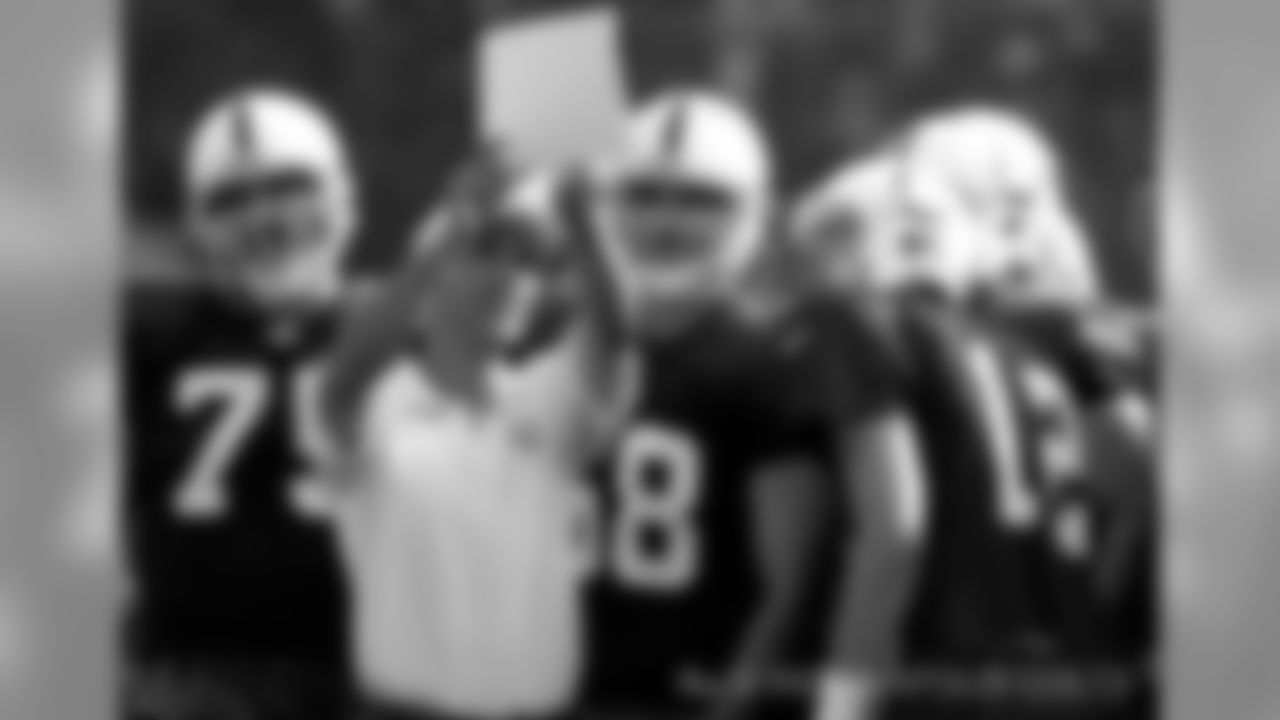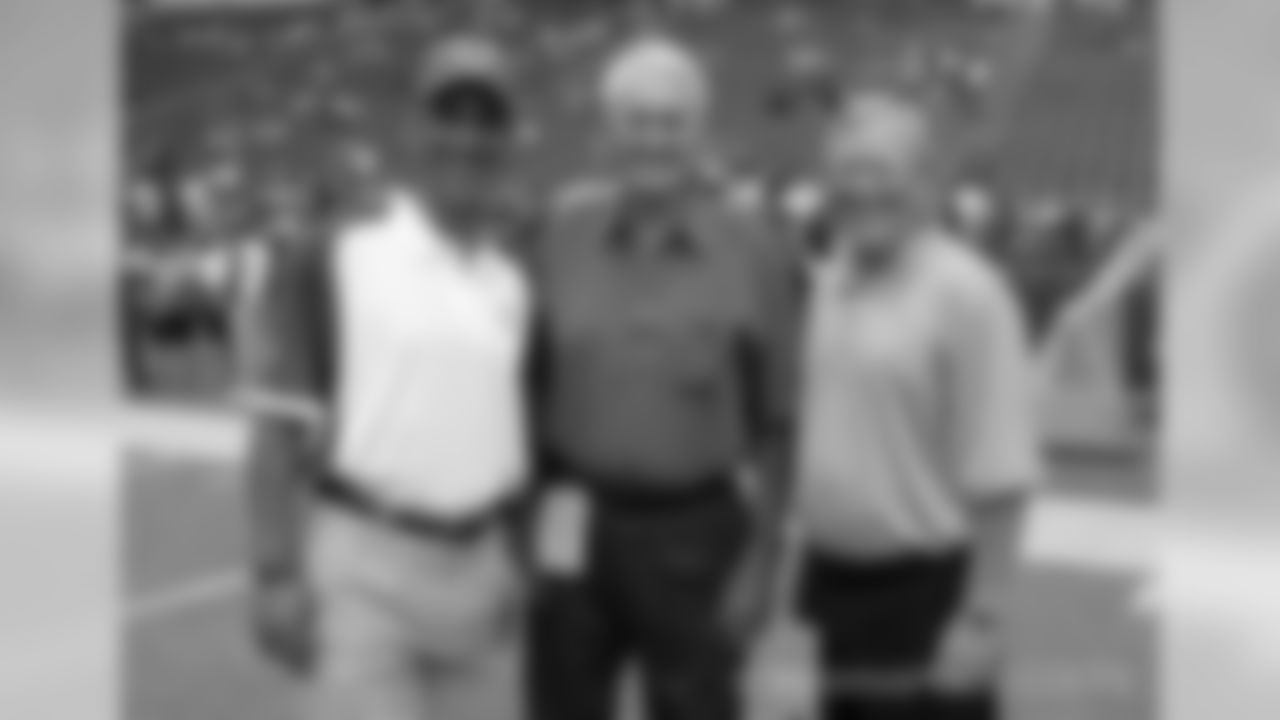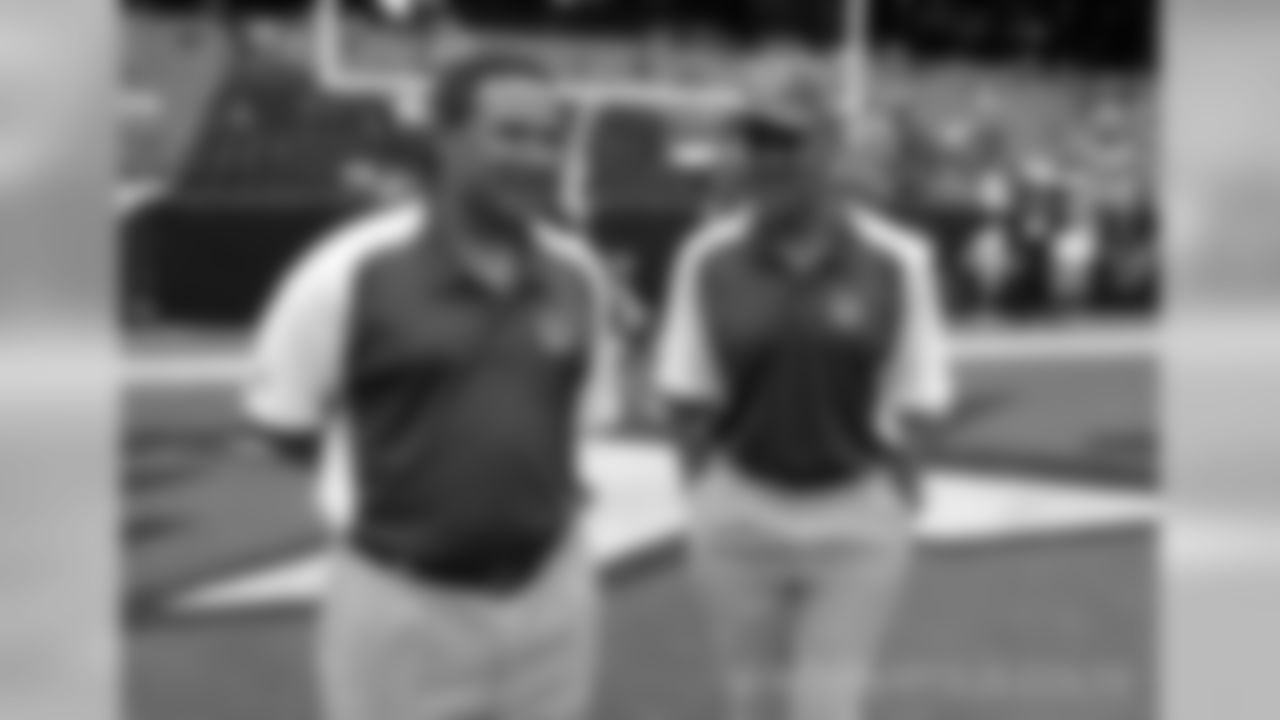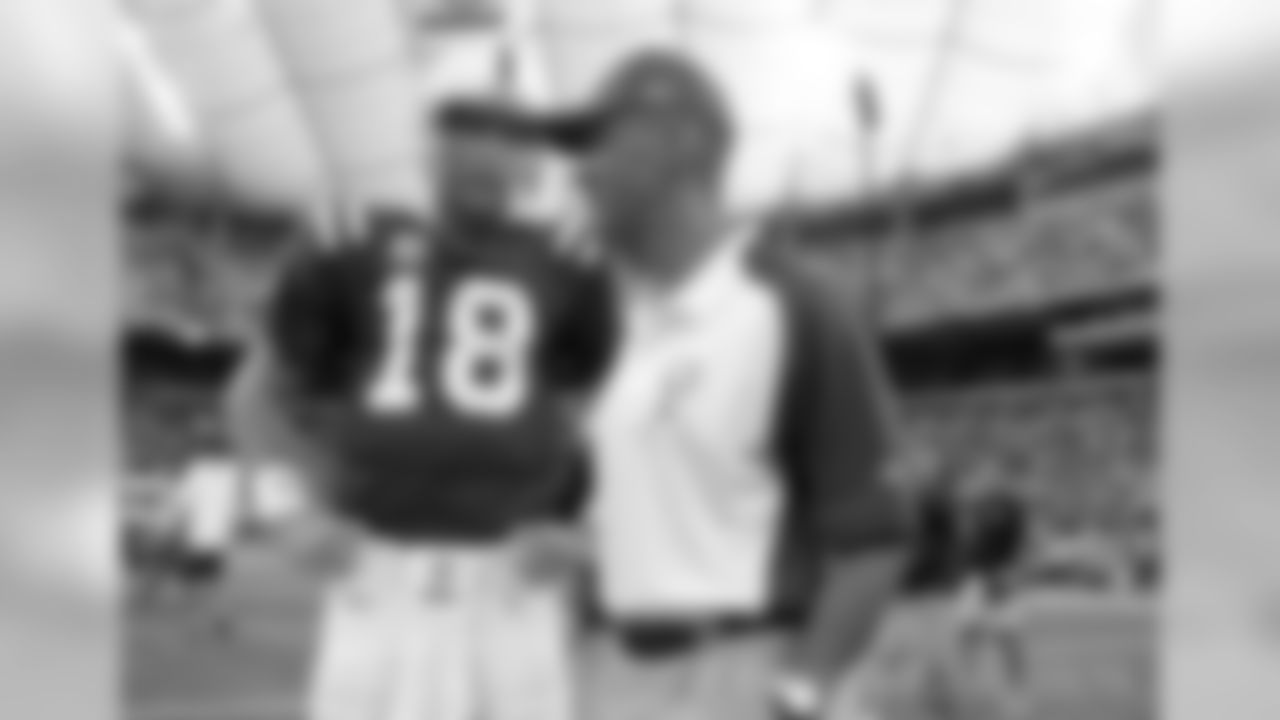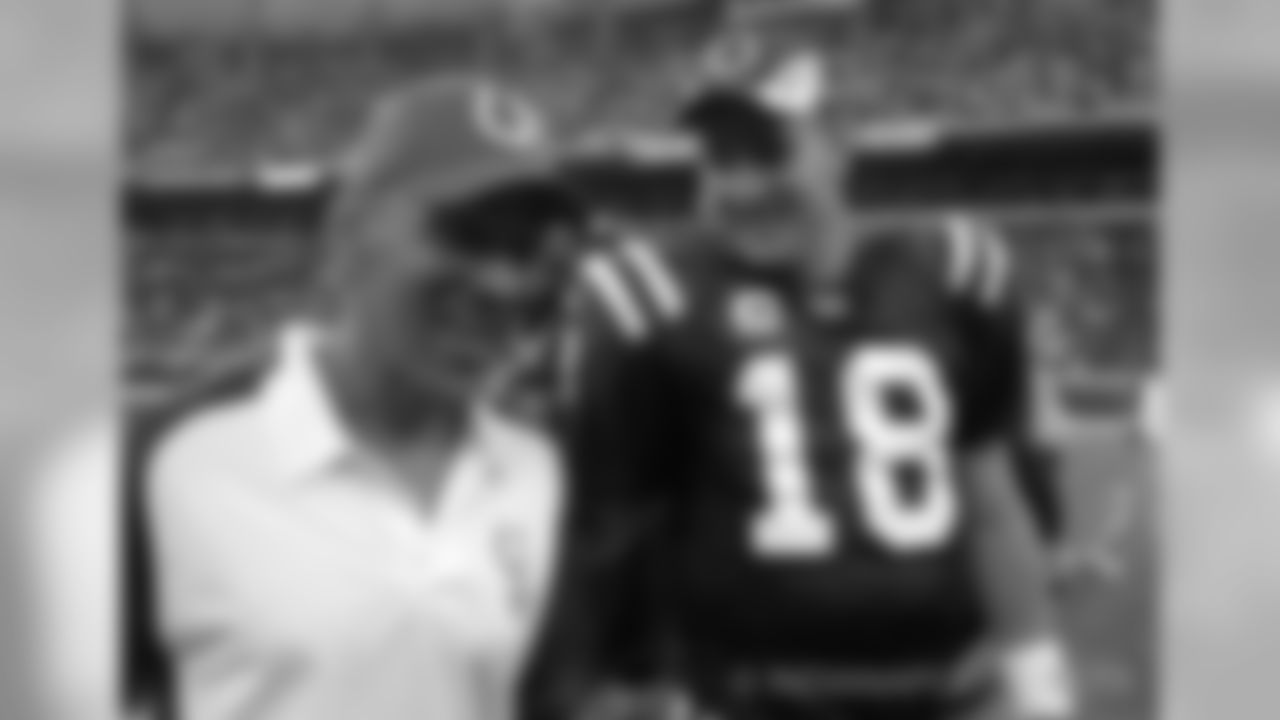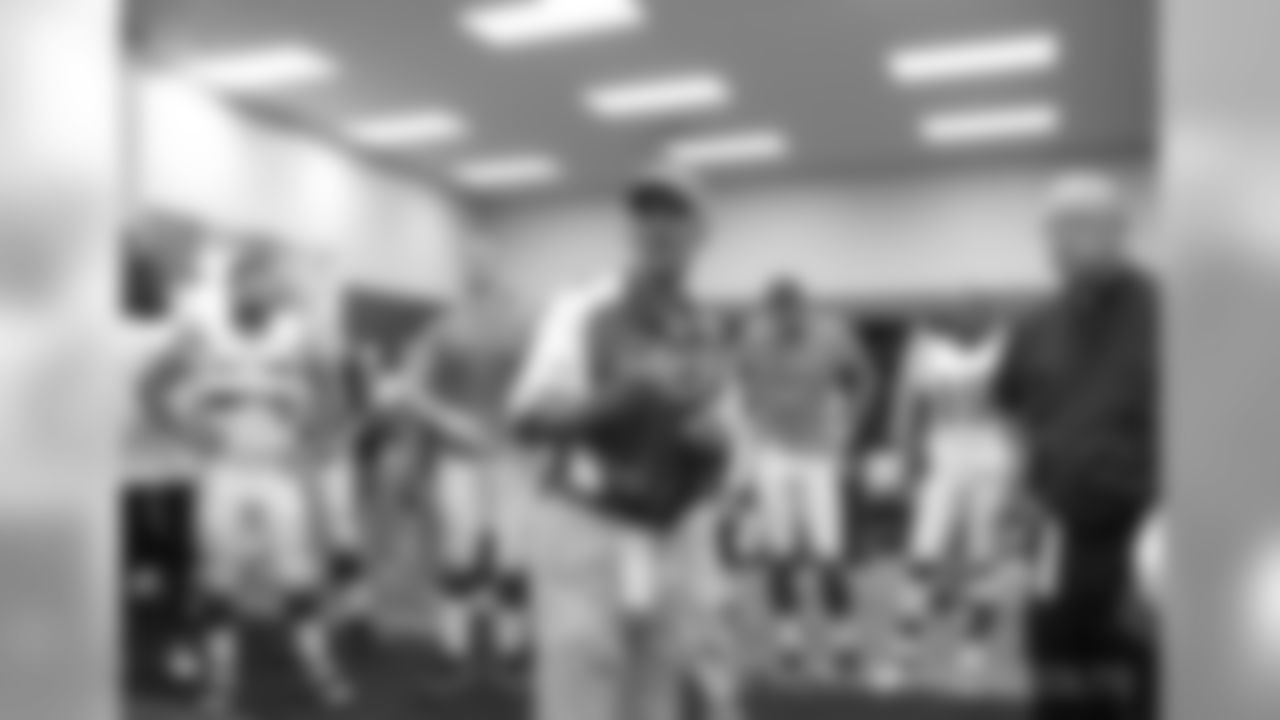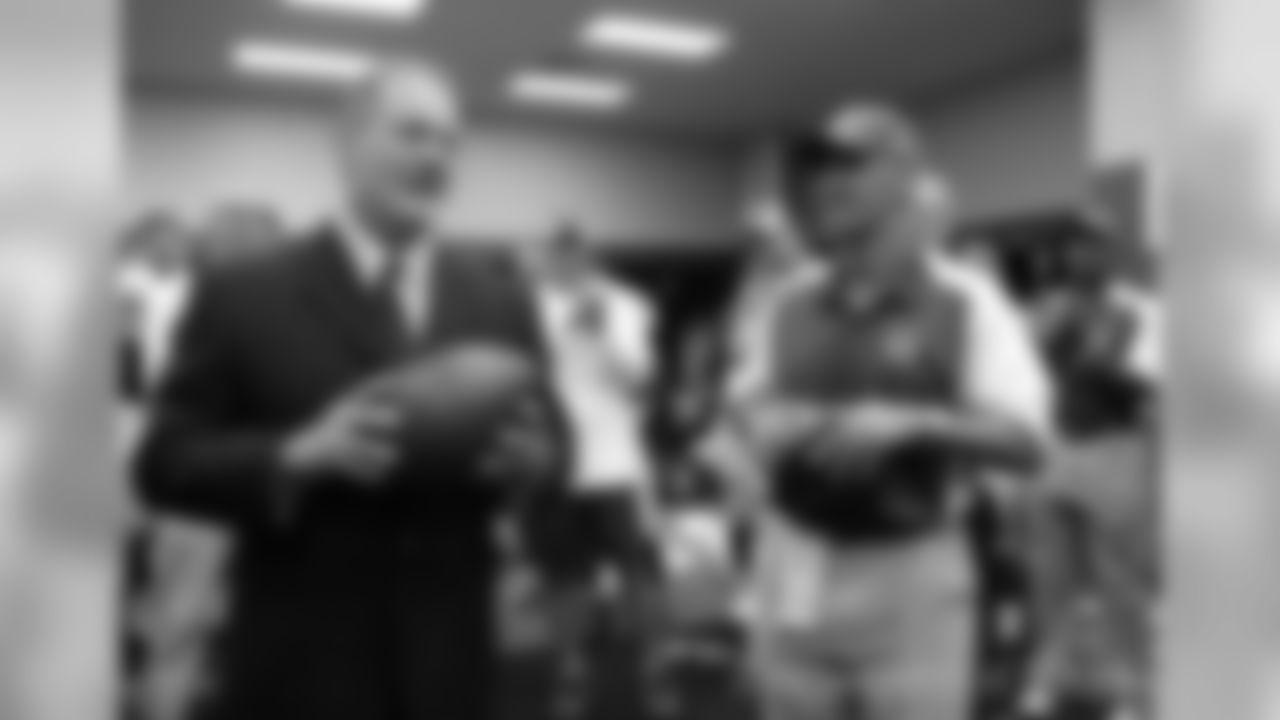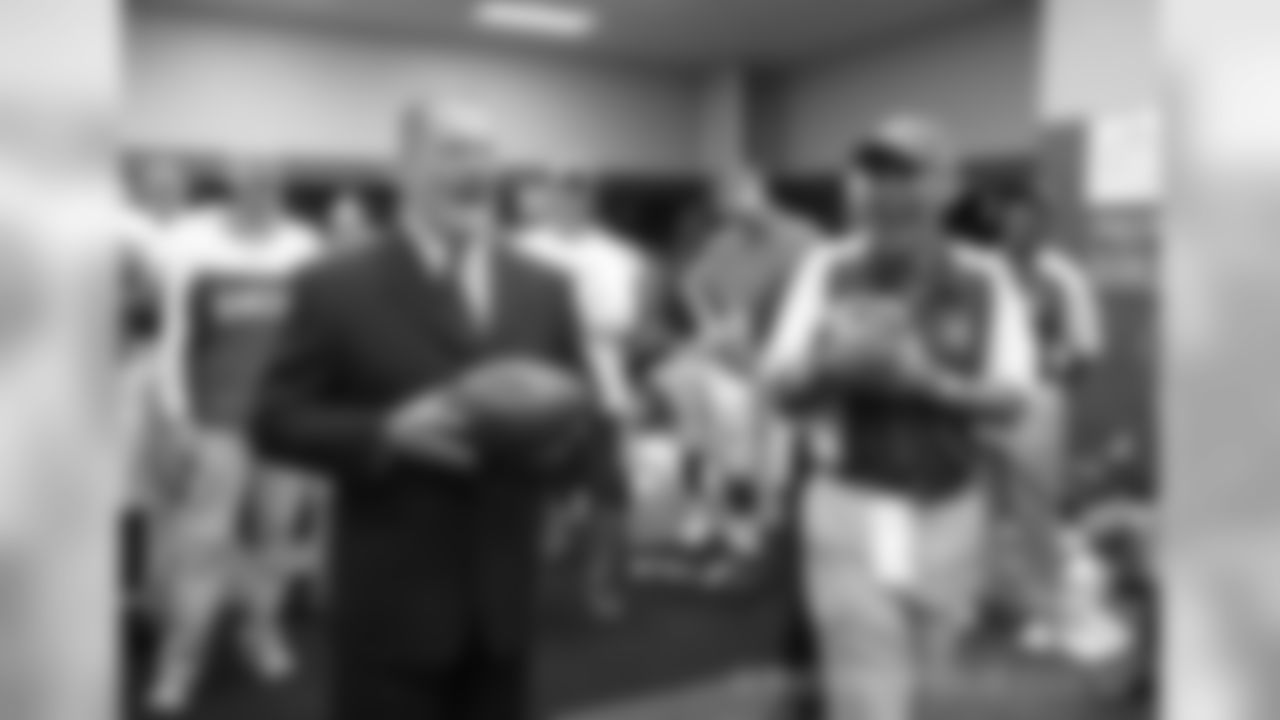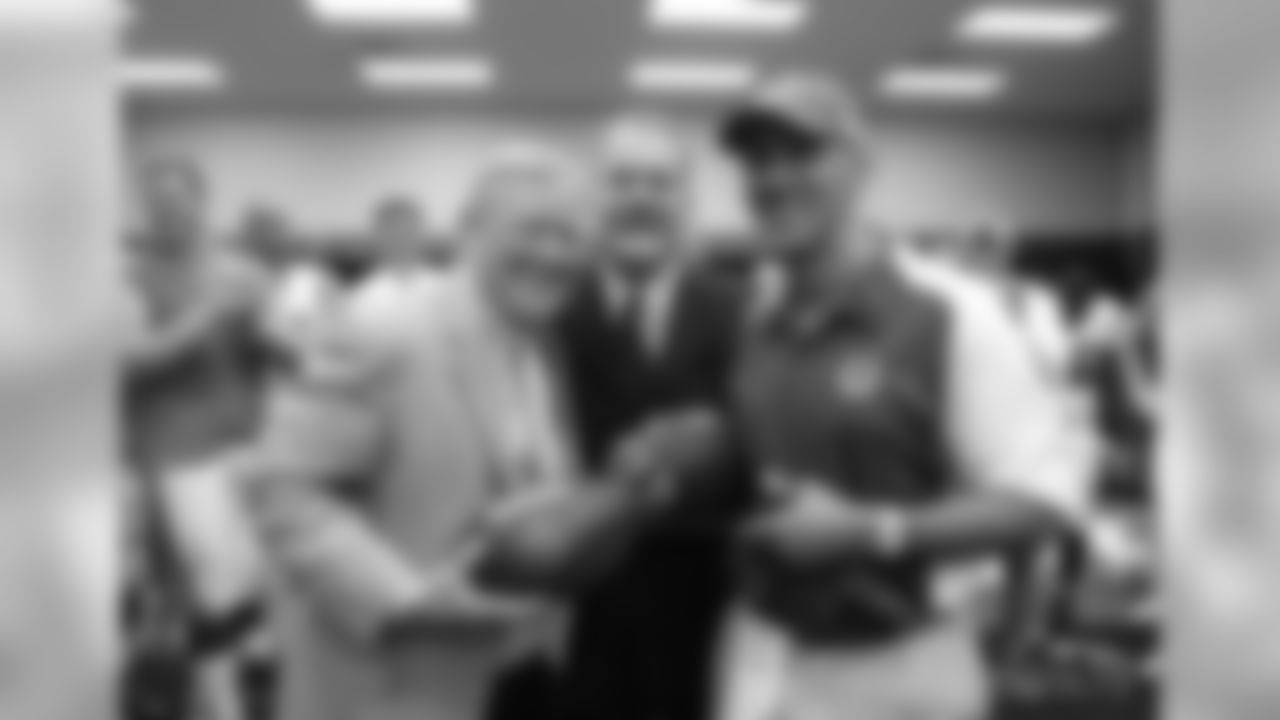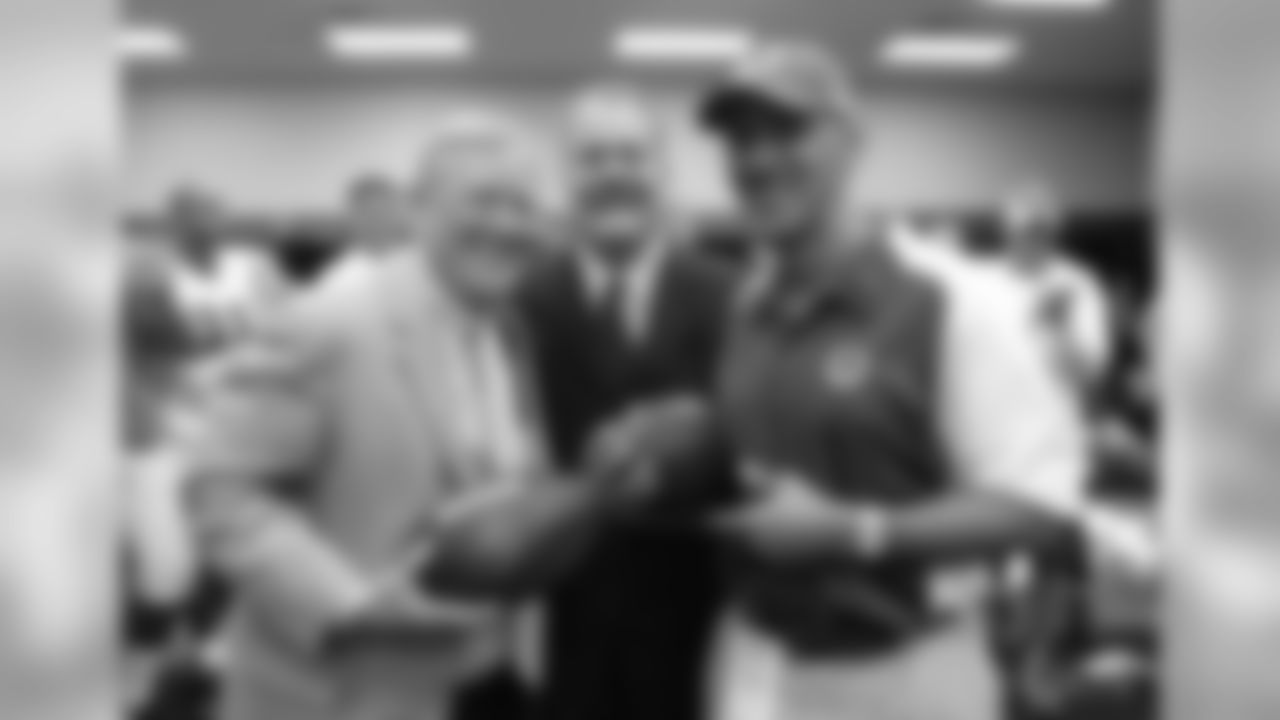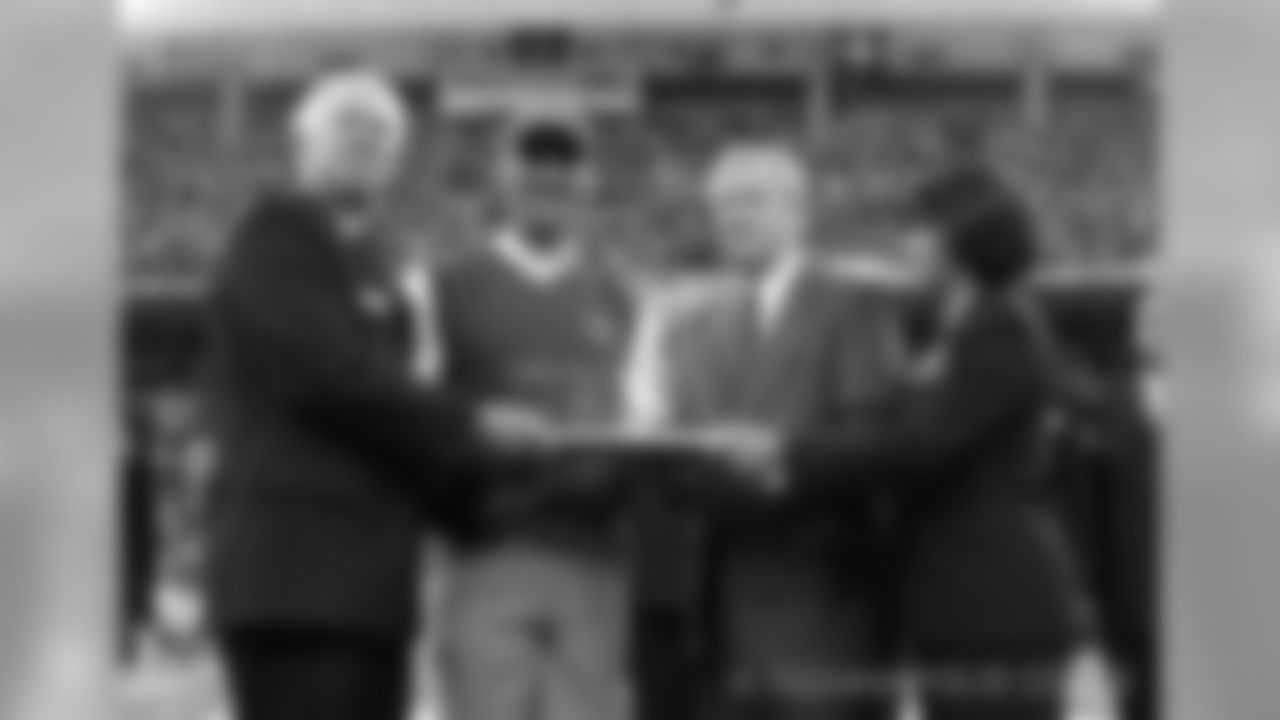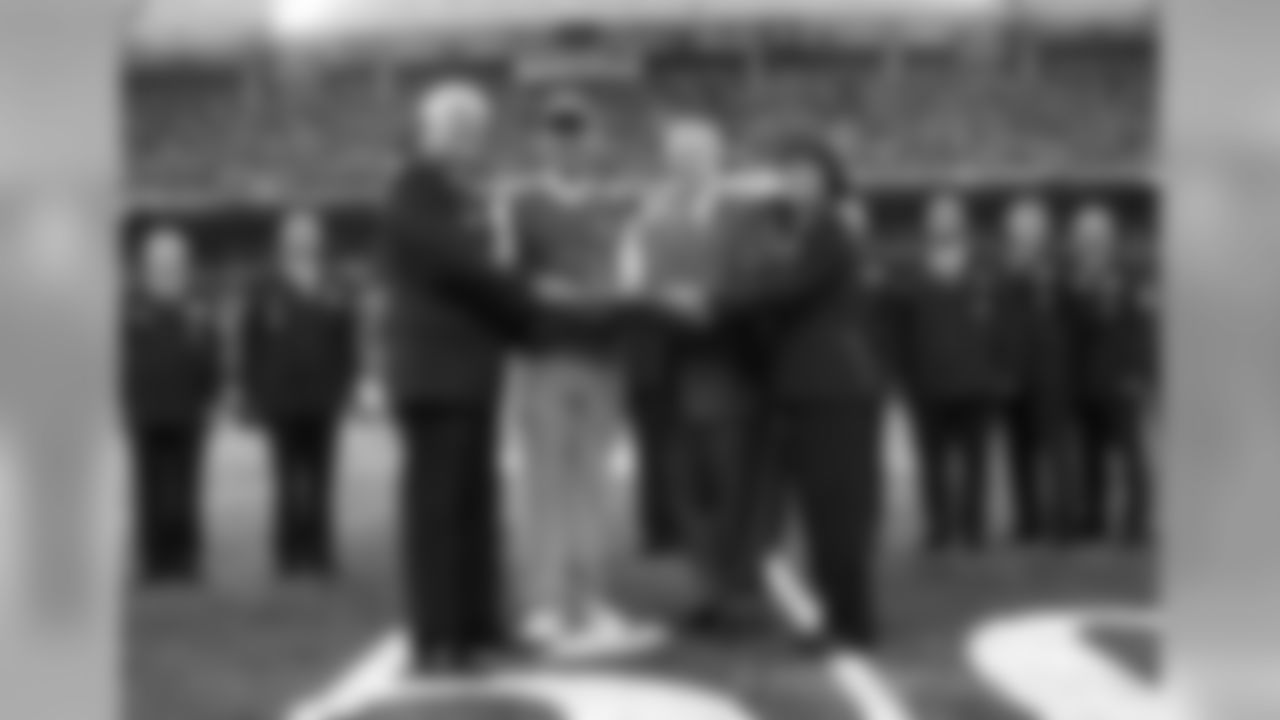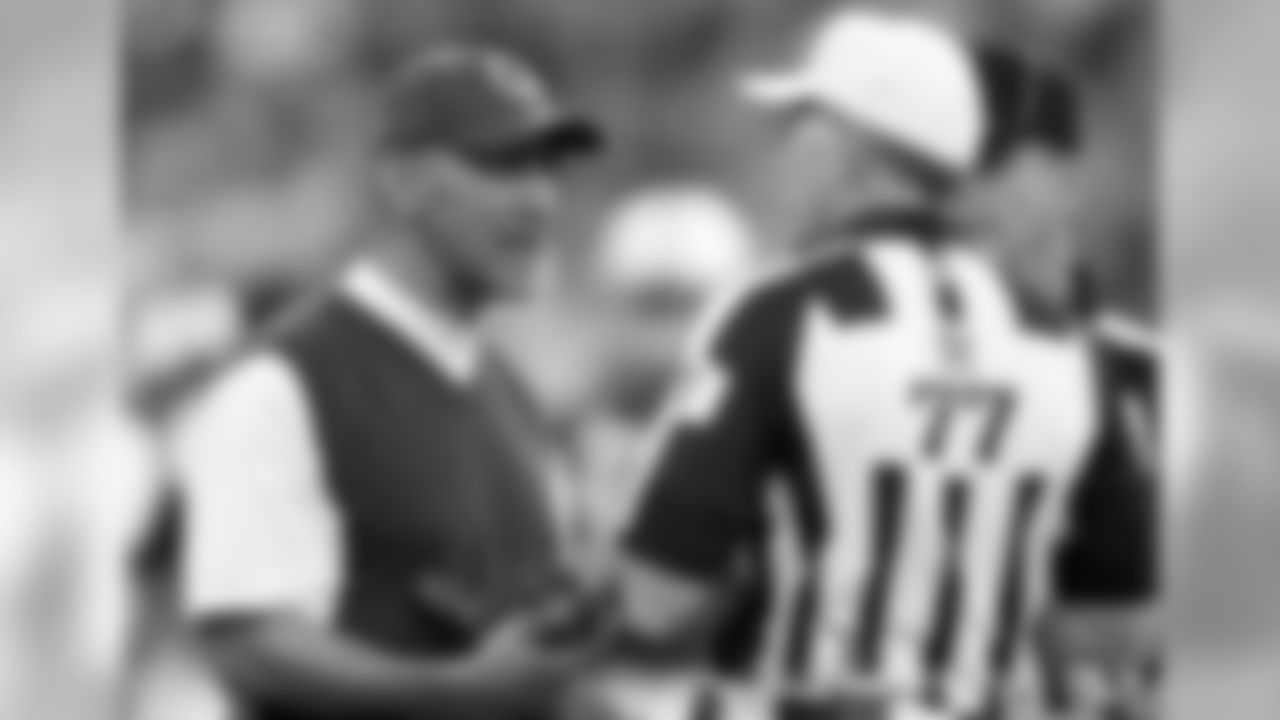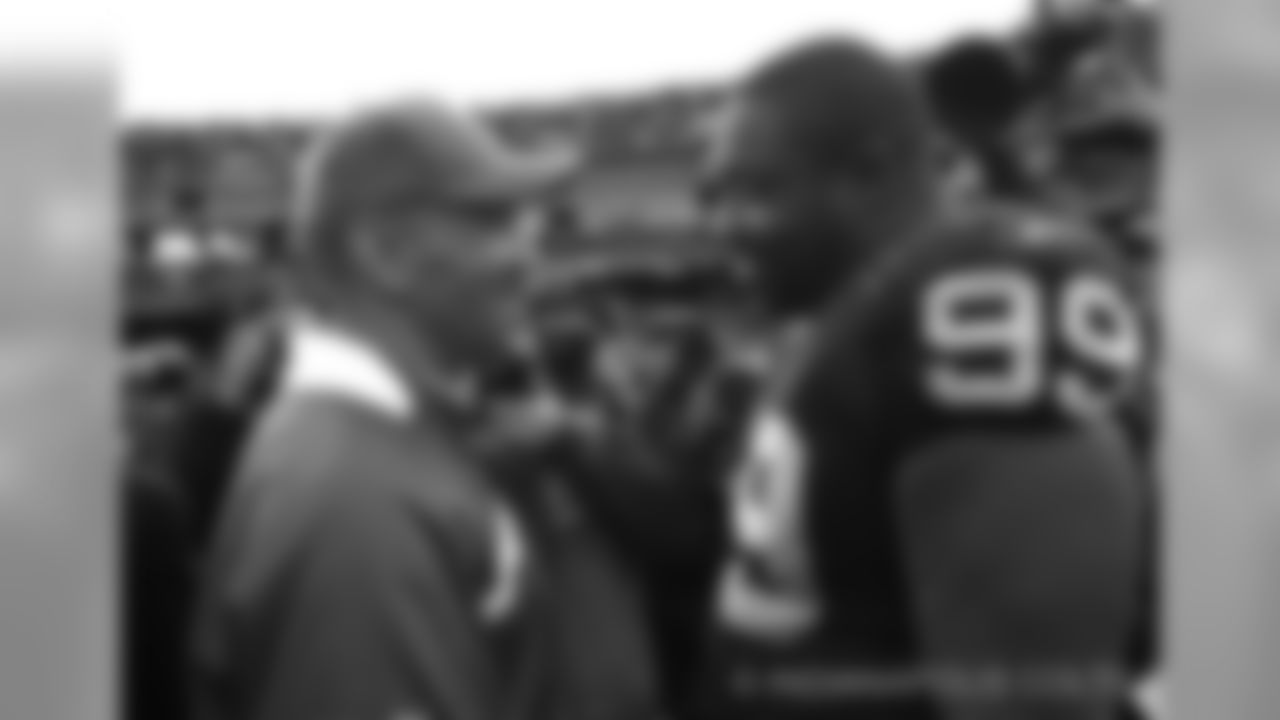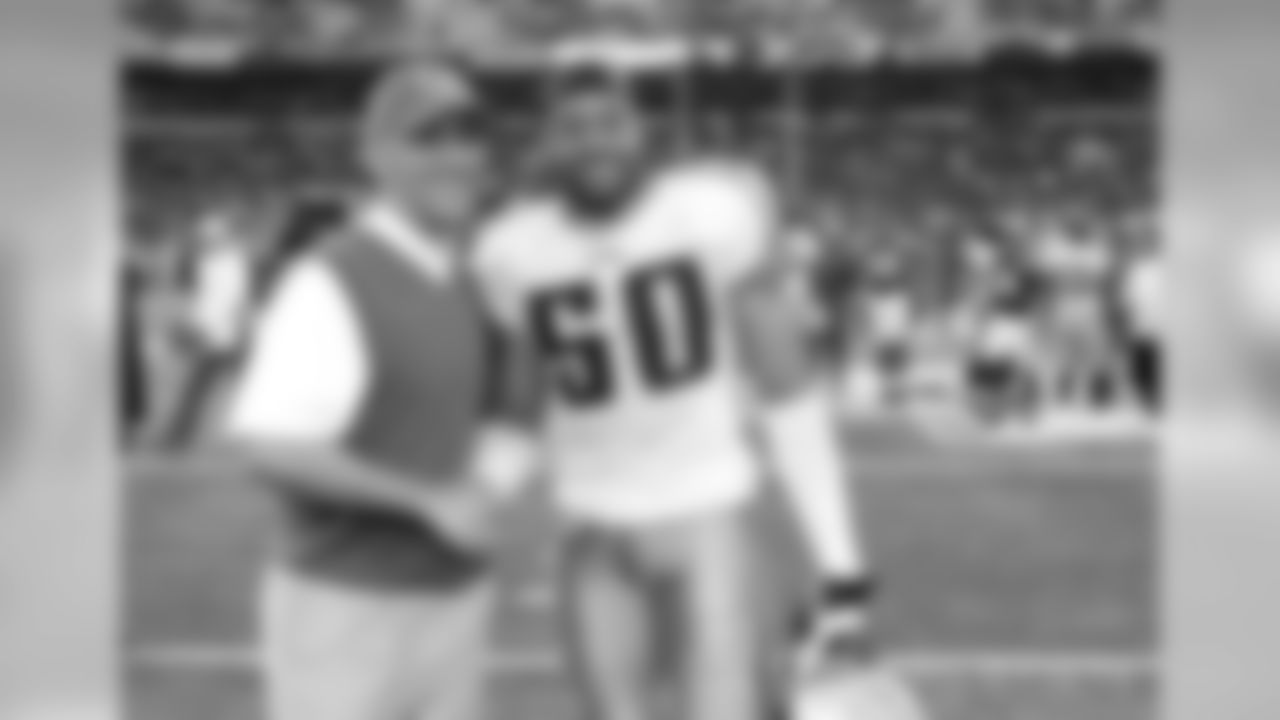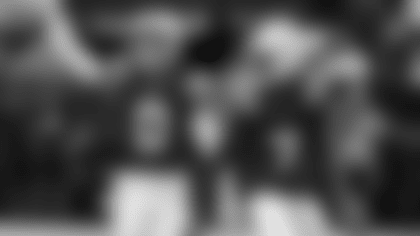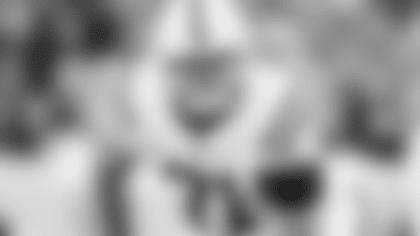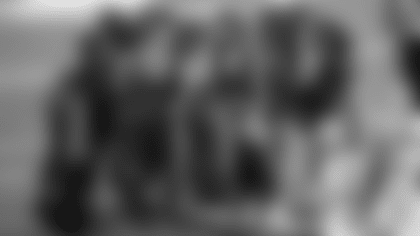INDIANAPOLIS — Jeremy Bergman and Adam Rank of NFL.com recently have been going division by division and listing the top 11 players in each NFL franchise's history.
Berman listed his top players for the AFC South teams, and his top choice for the Baltimore/Indianapolis Colts may surprise you:
1. Johnny Unitas, QB (1956-1972)
2. Peyton Manning, QB (1998-2011)
3. Marvin Harrison, WR (1996-2008)
4. Raymond Berry, WR (1955-1967)
5. Gino Marchetti, DE (1953-1966)
6. Reggie Wayne, WR (2001-2014)
7. John Mackey, TE (1963-1971)
8. Dwight Freeney, DE (2002-2012)
9. Edgerrin James, RB (1999-2005)
10. Lenny Moore, RB (1956-1967)
11. Art Donovan, DT (1950, 1953-1961)
Coach: Tony Dungy (2002-2008)
"This list pits two eras of Colts football, defined by their signal-callers, against one another: Unitas in Baltimore in the 1950s and 1960s vs. Manning in Indianapolis in the aughts. It's split pretty evenly, with six from the Unitas era and five from the Manning era, which is a telling examination of the franchise's splintered history. Johnny U vs. Peyton is an intra-franchise debate for the ages that involves all of the variables. How do you compensate for the different eras? How much do titles matter? Does iconography come into play? At the end of the squabble and after the weighing of inflated and deflated statistics, Unitas' three titles with the Colts, which include a victory in the sport's most iconic game, trump Manning's one championship with Indy and multiple postseason letdowns. Maybe Manning can take solace that Harrison and Wayne, No. 18's favorite receivers, are each ranked a spot ahead of where Johnny U's Berry and Mackey fall on the list, respectively. There are linemen (Marchetti and Freeney) and running backs (James and Moore) from both eras who made the list, and those who just barely missed the cut (Jeff Saturday, Robert Mathis, Marshall Faulk). But thems the breaks when your organization has a winning history in two wildly different time periods."
In the end, Bergman has Unitas trumping Manning, the discrepancy in championships being the deciding factor. Unitas won three NFL championships and a Super Bowl in his career and made 10 Pro Bowls, seven All-Pro teams and was named Most Valuable Player three times. His No. 19 has also been retired by the Colts franchise. By the time Unitas was traded to the San Diego Chargers, he essentially stood alone in the Colts' record books as a passer. He was inducted to the Pro Football Hall of Fame in 1979.
Manning can make a similar claim to the Colts' record books after basically rewriting what Unitas had done. Manning did not achieve the amount of championships Unitas did, but Manning did make 14 Pro Bowls, 10 All-Pro teams, is the only five-time NFL MVP and holds several significant NFL passing records. Manning's No. 18 has been retired by the Colts as well. He also has a statue outside of Lucas Oil Stadium, so there's that.
A little on all the other players who made this list:
• Harrison is the team's all-time leading receiver, tops in targets (1,781), receptions (1,102), receiving yards (14,580) and receiving touchdowns (128). He is also involved in numerous NFL records. An elite route runner, Harrison carved his way to eight Pro Bowls and seven All-Pro teams. He twice led the NFL in receptions and receiving yards as well as once tying for the league lead in receiving touchdowns. Harrison was inducted into the Pro Football Hall of Fame in 2016.
• Berry was basically Johnny Unitas' Marvin Harrison. Berry played his whole career in Baltimore and was the franchise leader in receptions (631), receiving yards (9,275) and receiving touchdowns (68) when he retired in 1967. He made six Pro Bowls and All-Pro teams each, and he led the league in receptions and receiving yards three times and receiving touchdowns twice. Berry was inducted into the Pro Football Hall of Fame in 1973. He later went into coaching, earning a head coaching gig with the New England Patriots from 1984-1989. He led them to a 48-39 record including two trips to the playoffs. Berry's No. 82 has been retired by the Colts.
• Marchetti made 11 Pro Bowls and All-Pro teams, which was every season except for two during his time with the Colts. He was known for being among the best overall players in the league during his era, even being voted as the greatest defensive end in pro football history by the Pro Football Hall of Fame in 1972, the year in which he was inducted. Marchetti's No. 89 has been retired by the Colts.
• Wayne became exactly what the Colts needed, when they needed it. He was drafted in the first round in 2001, but took some time to develop. By the mid-2000s he proved capable of playing at a WR1 level and entered his prime as Harrison hit the twilight of his career. By the time Harrison's time in the league was coming to a close, Wayne had grabbed the reins. By the end of his 14-year career with the Colts, Wayne stood second only to Harrison in targets (1,714), receptions (1,070), receiving yards (14,345) and receiving touchdowns (82). Wayne made six Pro Bowls, three All-Pro teams and led the NFL in receiving yards in 2007.
• Mackey's Colts career ended in 1971, but it took the Colts about 25 years afterward to find a tight end they could rely on in the same manner. Mackey made five Pro Bowls, three All-Pro teams and was the franchise leader among tight ends in receptions (320), receiving yards (5,126) and receiving touchdowns (38) until Dallas Clark came around. Mackey became just the second pure tight end inducted into the Pro Football Hall of Fame in 1992.
• Freeney was a dominant pass rusher for the Colts during his time in Indianapolis, a characterization that teams are constantly coveting. Freeney is second in franchise history in sacks (107.5) and forced fumbles (43). He made the Pro Bowl seven times and All-Pro four times with the Colts, leading the league in sacks in 2004.
• In a rich history of running backs, James managed to set himself apart from the rest. He is the franchise leader in carries (2,188), rushing yards (9,226) and rushing touchdowns (64). He's even eighth all-time in receptions (356). James tore an ACL in 2001, missing the rest of the year. Although he was a different player when he returned in 2002, he was still as productive as ever in his four remaining seasons with the Colts following the injury. He was the NFL Offensive Rookie of the Year in 1999 and led the NFL in rushing yards his first two years in the league. He made four Pro Bowls and All-Pro teams, and has been a Pro Football Hall of Fame finalist in recent years.
• Many fans remember James, Marshall Faulk and Eric Dickerson, but Moore was the first star running back the Colts ever had. He played all 12 seasons of his career in Baltimore and made seven Pro Bowls and five All-Pro teams. He was named NFL Rookie of the Year in 1956 and was both Comeback Player of the Year and MVP in 1964. Moore is in the top five in Colts history in both rushing (5,174) and receiving yards (6,039), and his No. 24 is retired by the team. He was inducted into the Pro Football Hall of Fame in 1975.
• Donovan was yet another Baltimore-era Hall of Famer, inducted in 1968. He was actually the first Colt to be inducted into the Hall. Donovan was named to five Pro Bowls and six All-Pro teams. He played an important part in "The Greatest Game Ever Played," the 1958 league championship between the Colts and New York Giants. Donovan made a drive-stopping tackle in overtime which led to Johnny Unitas leading the offense down the field for the game-winning drive. Donovan's No. 70 has been retired by the Colts.
• Dungy coached the 2006-07 Colts team that brought the first Super Bowl title to the Indianapolis-era Colts. He was also the first African American head coach to win a Super Bowl. Dungy was inducted into the Colts' Ring of Honor in 2010 after leading the team to an 85-27 record, including trips to the postseason each year. Under Dungy's watch, the Colts were the winningest team of any decade during the 2000s. He also has had a huge influence on several notable coaches — Lovie Smith, Mike Tomlin, Jim Caldwell, Herm Edwards, Rod Marinelli and Leslie Frazier all come from the Dungy "coaching tree." Dungy was inducted into the Pro Football Hall of Fame alongside Harrison in 2016.
2016 Pro Football Hall of Fame Inductee, Tony Dungy.

